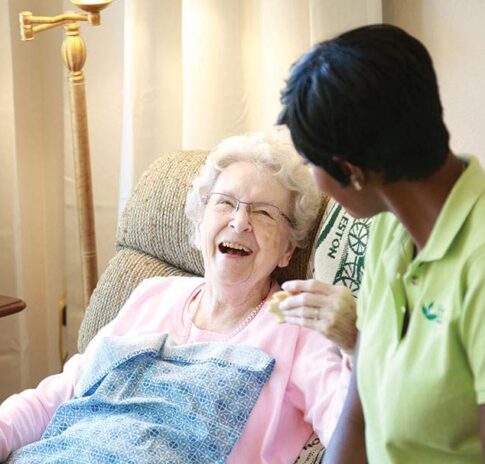June is Alzheimer’s & Brain Awareness Month. Worldwide, 47 million people are living with Alzheimer’s and other dementias and behind every person fighting this disease is a family member and caregiver battling it too. We know you’ve got questions. You’re scared and worried about what is going to happen next. This isn’t healthy. Caregivers and family members living alongside a person with Alzheimer’s need to care for themselves too. It’s not easy but it must be done for you to maintain your own health. We asked our FirstLight Home Care Caregivers to give us their best tools to help maintain a healthy environment for caregivers around the world. Here’s what they had to say:
Manage Stress. Stress does really bad things to our brain, especially the hippocampus. It’s an essential brain structure as far as learning and memory and it’s the first structure that starts to show problems with dementia. Watching a family member struggle with memory loss can be stressful. Stress management involves a multitude of tools but one approach that can be helpful to dementia caregivers is taking advantage of support services and respite care so they can get a chance to recharge their batteries.
Be Active. Regular physical activity has a protective effect. Moderate daily activities such as swimming, walking and group cardio classes are ideal activities to help you lower your risk for Alzheimer’s and help rejuvenate the caregiver’s spirit.
Ask for Help. This is harder than most people think. Some caregivers fear it is a sign of weakness, when in truth it actually shows your strength. We all have limits and when you ask others to step in and help you, you in turn will be stronger. Build a support system for you and for the person living with Alzheimer’s and you both will benefit from your support groups.
Plan for the Future. When someone in your family is diagnosed with Alzheimer’s disease, you need to start getting his/her health, legal, and financial affairs in order. By getting these as organized as possible, it will be extremely helpful as the disease progresses. You should make sure you have the following documents and that they are up to date: Durable Power of Attorney for Finances and for Health Care, Living Will, Do Not Resuscitate (DNR) form, Will, and Living Trust.
If you have questions about in-home care for family members living with Alzheimer’s disease, respite care services, or you would like to learn more about local support groups in your area, please reach out and ask our own Nurse Gina.
